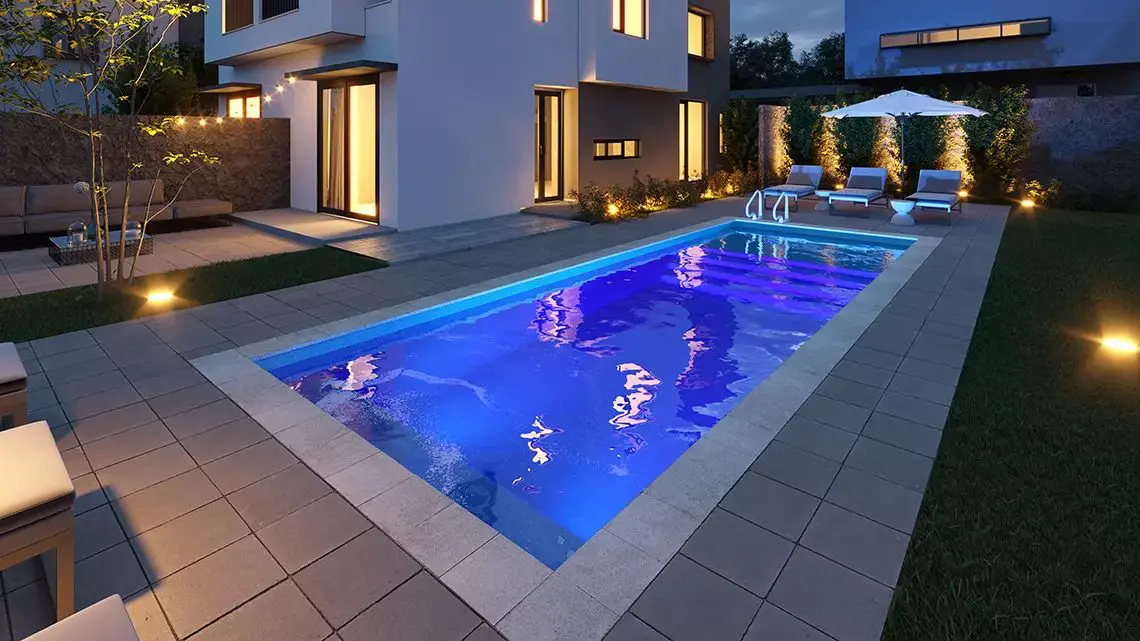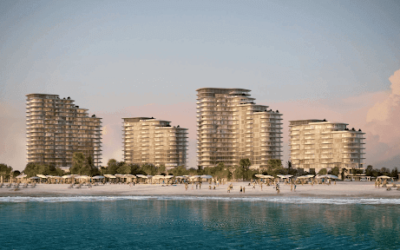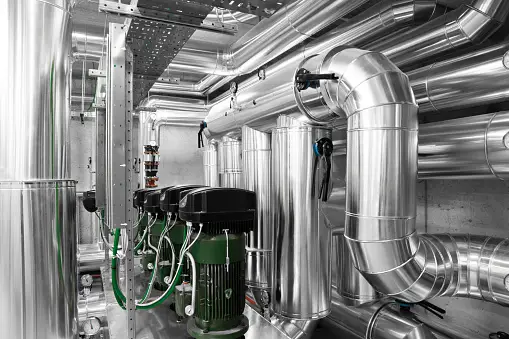Small Rectangular Fiberglass Pools: A Sustainable Choice

When it comes to adding a touch of luxury and relaxation to your home, few additions rival the appeal of a swimming pool. However, as we become more conscious of our environmental footprint, choosing the right pool material becomes crucial.
Among the various options available, the small rectangular swimming pool is emerging as a sustainable and eco-friendly choice for homeowners.
Fiberglass Pools: An Eco-Friendly Option
Before we dive into the environmental benefits of fiberglass pools, it’s essential to understand what sets them apart from other pool materials like concrete or vinyl. Fiberglass pools are prefabricated in a controlled environment, ensuring high-quality construction and minimal waste. This process already lays the foundation for their eco-friendliness.
1. Energy Efficiency
One of the most significant advantages of a small rectangular swimming pool is their energy efficiency. Due to their porous nature, traditional concrete pools require more energy to maintain the water temperature. In contrast, fiberglass pools have a smooth, non-porous surface that retains heat more effectively, reducing the need for frequent heating. This translates to significant energy savings and a reduced carbon footprint.
2. Durability and Longevity
Another key eco-friendly aspect of fiberglass pools lies in their durability and longevity. These pools are designed to withstand the test of time, with a strong and resilient structure that resists cracks and leaks. This longevity means less need for repairs or replacements, reducing the environmental impact associated with pool maintenance.
Compared to vinyl liner pools, fiberglass pools have a much longer lifespan. Vinyl liners are prone to tearing and require frequent replacement, generating more waste over time. In contrast, a well-maintained fiberglass pool can last for several decades, minimizing the need for disposal and replacement.
3. Reduced Chemical Usage
Maintaining water quality is essential for any pool, but fiberglass pools offer an advantage when it comes to reducing chemical usage. Their smooth, non-porous surface is less susceptible to algae and bacteria growth compared to porous materials like concrete. This means you’ll need fewer chemicals to keep the water clean and balanced, resulting in a more eco-friendly pool environment.
The reduced need for chemical treatments contributes to better water quality, making the pool safer for swimming and less harmful to the environment when water is eventually discharged or backwashed.
4. Water Conservation
Conserving water is a top priority in today’s world, and fiberglass pools play a role in this effort. These pools require less water for regular maintenance compared to their concrete counterparts. The non-porous surface minimizes water loss through evaporation, ensuring that you use less water to keep your pool at the desired level.
Many fiberglass pool models also come with built-in water-saving features such as efficient circulation systems and automatic water levelers. These innovations further reduce water consumption, making fiberglass pools an eco-conscious choice.
5. Lower Chemical Runoff
The smooth surface of fiberglass pools reduces the need for chemicals and minimizes the likelihood of chemical runoff into the surrounding environment. Chemicals can leach into the ground with concrete pools, potentially affecting local water sources and ecosystems. Fiberglass pools help mitigate this risk, making them a more environmentally responsible choice.
Conclusion
Small rectangular fiberglass pools are an elegant addition to your home and a sustainable choice that aligns with our growing environmental awareness. Their energy efficiency, durability, reduced chemical usage, water conservation, and lower chemical runoff make them an eco-friendly alternative to traditional pool materials.
As you consider investing in a pool for your home, think beyond the immediate benefits and consider the long-term environmental impact. By choosing a small rectangular swimming pool, you create a beautiful oasis in your backyard and contribute to a greener, more sustainable future for our planet. It’s a decision that benefits your family and the world we all share.



































